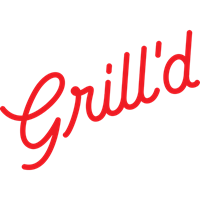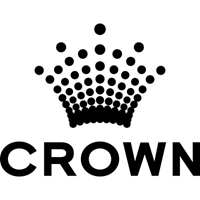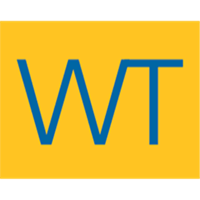Storm History
Melbourne Storm was founded in 1998 as part of the newly formed National Rugby League competition.
The first-ever professional Victorian rugby league club, Storm spent little time stamping its mark, winning the club's maiden premiership in just its second year.
Melbourne has played in a total of 10 grand finals during the club's 25-year history, missing the finals on only three occasions.
The Club has built itself on the values of family, accountability, hard work, respect and passion. It is these values that drive Melbourne Storm to succeed each and every year, both on and off the field.
Take a look back:
2023
16 Wins, 8 losses – 3rd place (eliminated in Preliminary Final)
Melbourne Storm qualified for the club’s 16th Preliminary Final appearance in 2023, ultimately going down to eventual Premiers the Penrith Panthers.
After the departure of established leaders Jesse and Kenny Bromwich, Felise Kaufusi and Brandon Smith at the conclusion of the 2022 season, Storm battled consistency across the regular season despite showing glimpses of brilliance for patches of the campaign.
The year saw the emergence of exciting winger Will Warbrick and workhorse Bronson Garlick, who both made their debuts in a thrilling Round 1 Golden Point win over the Parramatta Eels.
Warbrick claimed Back and Rookie of the Year at the Storm Awards night, while Garlick was awarded the Most Improved Player award.
Xavier Coates took out Storm Player of the Year honours in just his second season in Storm colours, scoring 16 tries while Harry Grant also claimed Dally M Hooker of the Year.
The FIFA Women’s World Cup saw two games played at Marvel Stadium in 2023, the club playing there for the first time in Round 18 against the Penrith Panthers and then the Parramatta Eels a month later in Round 22.
The club also celebrated its 25-year anniversary, acknowledging the club’s proud history and premiership success.
After finishing in 3rd place at the conclusion of the regular season, Storm were defeated by the Brisbane Broncos in Week One of the finals, going down 26-0 in wet conditions at Suncorp Stadium.
Storm returned home to AAMI Park for a Week Two meeting with the Sydney Roosters, prevailing 18-13 thanks to a last-gasp try from winger Will Warbrick in the dying seconds.
Warbrick’s try ensured Storm made it nine straight wins at AAMI Park for the season, having only lost one game there all season.
Storm would fall short of reaching the Grand Final, beaten by the Penrith Panthers 38-4 at Accor Stadium in the Preliminary Final.
2022
Wins 15, losses 9 – Fifth place (eliminated finals week one)
Storm qualified for a remarkable 12th consecutive NRL finals appearance in 2022, but its run of seven straight preliminary finals came to an end after an injury-affected season.
After losing its final two home and away fixtures, coach Craig Bellamy’s team dropped out of the top four and was forced into elimination football in the first week of the finals for the first time since 2014.
Their season was ended by the Canberra Raiders, who scored a 28-20 win in a see-sawing contest played in front of just over 20,000 fans at AAMI Park, bringing to an end the Storm careers of four of the club’s premiership-winning forwards who had signed elsewhere for 2023 – captain Jesse Bromwich, his brother Kenny, Felise Kaufusi and Brandon Smith.
In 2022, Storm was back at home at AAMI Park for the full season for the first time since 2019 and the round two clash, in particular, took on very special meaning.
Not only was it the purple jersey’s first appearance in front of members and fans in Melbourne for almost a year due to COVID-19 restrictions, Craig Bellamy celebrated 500 games as Storm coach, becoming only the fourth man to reach that level in the competition’s history. His team made sure it was a memorable night, beating South Sydney in golden point.
Later in the year, Bellamy agreed to coach his 21st season in 2023, having already committed his long-term future with the club.
An early end to the 2022 competition wasn’t in Storm’s calculations, especially after a rapid start to the year which featured nine wins in the opening 10 rounds as the club finally returned fulltime to Melbourne after the COVID-affected 2019 and 2020 seasons. The only defeat was in incredibly unlucky circumstances in golden point extra-time against Parramatta.
Along the way, their free-flowing rugby league produced some huge wins, highlighted by a record-breaking 70-10 thrashing of the Warriors in the annual Anzac Day match at AAMI Park – the highest score and equal highest margin of victory Storm had ever recorded at its home ground.
It was part of a three-week period where Storm outscored their opponents by a remarkable 162-18, sending them to second on the ladder.
However, a mounting injury toll, which began as early as round one with season-ending injuries to new captain Christian Welch and winger George Jennings, eventually caught up with Melbourne.
By season’s end, 15 players had spent in excess of five weeks off the playing field, including one of the club’s most pivotal players, 2020 Clive Churchill Medallist Ryan Papenhuyzen, who was restricted to just 12 matches and was unavailable from round 18.
Storm won just three of nine games through the middle of the season before rallying with four straight victories, highlighted by their best performance of the campaign, a 16-0 shutout of reigning premiers and ladder leaders Penrith away from home.
However, the 60-12 demolition of the Brisbane Broncos the following week ended up being Melbourne’s last success for 2022.
In round nine, Kenny Bromwich became only the eighth player to reach 200 games with Storm and he joined with his brother Jesse later in the year in reaching 500 combined Storm matches – the most by any two brothers for one club in the game’s history.
Jesse ended his stellar Storm career on 295 appearances – fourth on the Storm games played list - to go with multiple premierships and club Player of the Year awards.
Their Kiwi teammate Nelson Asofa-Solomona became the 17th player to reach 150 Storm games when he ran out against the Dragons.
In representative football, Cameron Munster, Harry Grant, Felise Kaufusi and Xavier Coates lined up for the Queensland Maroons, coached for the first time by Storm great Billy Slater,who won the State of Origin series 2-1 against New South Wales.
And 13 players were selected to play for their country in the end-of-season World Cup in the UK.
Munster was recognised with the first Cameron Smith Player of the Year Award as Storm’s best player for 2022, and was also named Dally M Five-eighth of the Year.
Off the field, Melbourne marked a major achievement in August, becoming the first NRL club to sign on 40,000 members in the one season, taking over the No.1 spot for NRL club membership for the first time in club history.
The Ride The Storm campaign eventually delivered a final total of 41,108 members, including an additional 14,421 new members.
Many of them were hand to witness a special pre-match ceremony prior to the round 18 clash with Canberra when the club honoured its long-time captain and NRL games record holder Cameron Smith by renaming the Eastern Stand at AAMI Park the "Cameron Smith Stand".
2021
Wins 21, losses 3 – Minor premiers, Preliminary finalists
After a record-breaking season, despite the challenges of again being based away from Melbourne for the majority of the campaign, Storm came up just short of winning back-to-back NRL premierships for the first time.
The second year of the COVID-19 Pandemic forced the club to move its NRL squad away from Victoria from round eight, with only five of 13 scheduled matches going ahead at AAMI Park.
However it didn’t stop Storm from plundering 19 consecutive victories from round four onwards, equalling the premiership record for most consecutive wins set by the 1974 Easts Roosters.
They also completed a remarkable run of 30 straight victories in Queensland with the run ending against Parramatta (22-10) in round 24 at Suncorp Stadium.
The winning streak guided Storm to its second minor premiership in three years, with just three losses – two of those coming in the first three weeks of the season as the team adjusted to life without inspirational captain Cameron Smith, who announced his retirement after 430 games with Melbourne prior to round one.
Statues of Smith, the only NRL member to reach the 400-game milestone, and fellow Storm legend Billy Slater were unveiled outside AAMI Park in the lead-up to the season opener.
During 2021, Storm set a record for most games scoring 40 or more points (12 in total) as they tallied a club record 815 points for the season.
The last of those was a 40-12 defeat of Manly in week one of the finals series, completing a perfect 10 from 10 in games played at Storm’s “home away from home” at Sunshine Coast Stadium.
However, Storm’s bid for another grand final appearance was ended by the team they defeated to earn the 2020 premiership, the Penrith Panthers, who emerged as 10-6 winners after a torrid preliminary final at Suncorp Stadium.
It was Melbourne’s seventh consecutive preliminary final appearance.
With Smith no longer part of the club for the first time since 2002, experienced forwards Jesse Bromwich and Dale Finucane took over as co-captains, while Storm also had a first-year CEO in Justin Rodski, who took over from Broncos bound Dave Donaghy.
Winger Josh Addo-Carr and Finucane featured in the NSW State of Origin team which claimed a 2-1 series win against Queensland despite all three matches being played north of the border.
Cameron Munster, Christian Welch, Felise Kaufusi and Harry Grant lined up for the Maroons.
In the end-of-season Dally M Awards, Craig Bellamy, who signed a five-year contract extension in August, claimed a remarkable sixth Coach of the Year Award, while Brandon Smith (Hooker of the Year) and Justin Olam (Centre of the Year) were named in the Team of the Year for the first time.
The preliminary final loss to Penrith ended the Storm careers of Finucane, Addo-Carr and Hynes, who were headed to Sydney-based teams for 2022.
The 2019 Storm Player of the Year, Finucane finished on 152 matches for Storm and never finished worse than a preliminary final appearance, winning two premierships.
Addo-Carr was again the club’s top tryscorer, crossing for 23 tries, including an amazing six tries in a club record performance against South Sydney in round six – the first time a player had achieved that feat in 71 years.
The Foxx, also a two-time premiership winner, ended his Storm career with 93 tries in 128 matches.
Hynes was a breakout star in 2021, taking over the No.1 jersey when Ryan Papenhuyzen was unavailable and was rewarded with a call-up to the NSW squad as 18th man for Game Three on the Gold Coast.
Storm’s departure list also featured 2020 grand final winner Brenko Lee, who did not play an NRL game in 2021, as well as NRL squad members Ryley Jacks, Max King, Aaron Pene and Darryn Schonig.
Finucane was one of three Storm players to reach 150 games for the club – joining Cameron Munster and Felise Kaufusi in reaching the milestone in consecutive weeks in the final month of the season.
Despite not being able to see their team in action at AAMI Park for most of the year, Storm’s members again rallied around the club in record numbers, breaking through the 28,000 mark for the first time.
As a thank-you for their outstanding loyalty during the pandemic period, the club offered all ticketed members from Victoria for the past two years with a free membership to redeem for 2022.
2020
Wins 16, losses 4. Result: Premiers
A season of unprecedented interruptions, restrictions and challenges finished on an incredible high as Storm clinched its sixth NRL premiership with a 26-20 victory against Penrith in the grand final.
With its home state of Victoria the worst affected region in Australia in the COVID-19 pandemic, Storm was forced to spend the majority of the season on the Sunshine Coast, playing all but their first two scheduled home games in Queensland.
And those two fixtures – a win against Cronulla and a loss to Canberra – were in front of empty stands at AAMI Park with members and fans not allowed to attend as the government grappled with containing the pandemic.
With COVID numbers growing and uncertainty mounting about the rate of its future spread, the entire competition was closed down on March 23 after just two rounds and didn’t resume until May 28 with Storm, unable to train at home, undertaking a “mini pre-season” in Albury to prepare for a rescheduled 20-round season.
As Victoria’s situation deteriorated, the squad relocated firstly to Sydney for a short period prior to the round seven 50-6 win against the NZ Warriors and then to Twin Waters Resort, setting up a camp that eventually grew to more than 100 players, staff and family members.
They were confined to a strictly enforced bubble away from the public for a large part of their four months away from home, but the team’s enormous resilience showed through as they used an “Adapt and Overcome” mantra to maintain a position inside the top four on the ladder.
Storm played six games at their temporary home at Sunshine Coast Stadium, recording six victories.
The winning streak on the Coast started with a 42-6 defeat of the Gold Coast Titans and also featured victories against Newcastle (26-16), Canterbury (41-10), Manly (30-6), North Queensland (30-20) and Wests Tigers (50-22).
When the 20 rounds were complete, Storm had secured second place on the ladder, five points behind minor premiers Penrith.
A 36-24 win against Parramatta at Suncorp Stadium in week one of the finals sent Melbourne straight through to the preliminary final where they turned on an early try-scoring blitz to see off the Canberra Raiders 30-10 in front of 37,112 fans, again in Brisbane.
Storm’s grand final opponents, Penrith, entered the grand final on an equal NRL record 17-game winning streak, and as the betting favourites, but on a wet night at ANZ Stadium in Sydney they ran into a powerhouse first half from Melbourne.
Tries to Justin Olam, Suliasi Vunivalu and Cameron Smith sent Storm 22-0 clear at halftime and that lead built to 26-0 when fullback, and eventual Clive Churchill Medal winner, Ryan Papenhuyzen raced away to score in the 45th minute.
There was late drama for Storm as Penrith scored three times in the last 12 minutes and they had to hold on in the final minute down to just 11 men after Jahrome Hughes and Brandon Smith were sinbinned.
The always influential Smith lifted the Provan Summons Trophy as captain in what would turn out to the final match of his illustrious 430-game career. His much discussed and speculated retirement announcement not coming until the week before the 2021 season got underway.
From the grand final 17, Storm also farewelled Suli Vunivalu (rugby union) and young forward Tino Faasuamaleaui (Gold Coast Titans), while assistant coach Jason Ryles switched to English rugby.
Smith, who won Storm’s Player of the Year Award for the eighth time, brought up his record 300th NRL victory in round nine against Canberra, while Dale Finucane reached 200 NRL matches in the preliminary final.
Storm had four players in the Queensland squad which upset New South Wales 2-1 in the end-of-season State of Origin series with player of the series Cameron Munster, Felise Kaufusi, Tino Faasuamaleaui, Christian Welch and Brenko Lee donning the maroon jersey. Josh Addo-Carr and Dale Finucane represented the Blues.
In his 18th season as head coach, Craig Bellamy was awarded the Dally M Coach of the Year for the fifth time with Josh Addo-Carr (Winger of the Year) and Cameron Smith (Hooker of the Year) also gaining individual awards.
Off the field, Storm unveiled Redzed as its new major partner and the club hit a new membership record of 25,448 despite the handicap of not having fans in the home stands for the entire season.
2019
Wins 20, Losses 4. Result: Minor Premiers, Preliminary finalists
The celebrations for captain Cameron Smith becoming the first NRL player to reach the 400-game milestone and a convincing minor premiership win were the highlights of a 2019 season which disappointingly ended one game short of another grand final appearance.
Storm turned in one of the best home and away seasons in NRL history, losing just four times and all by a small margin (two in golden point extra time), as they claimed the JJ Giltinan Shield by six points over the Sydney Roosters.
Melbourne had both the best attacking record (631 points) and best defensive record (300 points).
However their bid for the premiership hit a significant hurdle in the opening week of the finals with a last-minute Canberra Raiders try handing Storm a rare 12-10 loss at home and taking away their direct path to the preliminary final.
Although Melbourne bounced back impressively with a 32-0 demolition of Parramatta in the semi-finals, their season ended with a trip to the SCG where the Sydney Roosters claimed a 14-6 victory.
At age 36, Smith became the first NRL player to run out for 400 games when he emerged from the AAMI Park tunnel for the round 17 clash with Cronulla – one of the most memorable nights in the club’s history.
Inspired by the historic occasion, and spurred on by a crowd of 22,737 including more than 100 of the captain’s family and friends, Melbourne triumphed 40-16 with the hooker amongst his team’s best, setting up tries and kicking eight goals from nine attempts.
Earlier in the week, the captain had been joined at a special club celebration by the four men who had played 400 AFL games – Kevin Bartlett, Michael Tuck, Dustin Fletcher and Brent Harvey.
In 2020, Smith also became the game’s highest ever pointscorer, surpassing Canterbury’s Hasem El Masri with a penalty goal in the 48th minute in a win against North Queensland in Townsville. He also reached 300 games as Storm captain.
In his 17th season with the club, Craig Bellamy brought up his 300th victory as coach in round 16 when a Storm team missing seven players due to State of Origin defeated St George Illawarra 16-14 in Wollongong.
Prior to the start of round one, the northern stand at AAMI Park was renamed as the “Slater Stand” after club legend Billy Slater and Storm kicked off the year with a 22-12 win against Brisbane, extending their unbeaten streak in round one to a remarkable 17 seasons.
Jesse Bromwich and Dale Finucane were installed as joint vice-captains for the first time, with Finucane going on to have an outstanding season, winning Player of the Year honours and making his State of Origin debut for New South Wales.
Josh Addo-Carr finished as Storm’s leading tryscorer for the season with 14 tries and made his Australian debut in the end-of-season Test against New Zealand, scoring a try in a 26-4 victory.
Will Chambers, who played his 200th Storm game in a round nine demolition of Parramatta, departed the club for Japanese rugby at the end of the season.
His career with Melbourne included three grand final victories, 13 State of Origin appearances for Queensland and seven Tests for Australia.
2018
Wins 16, Losses 8. Result: Runners-up
Melbourne Storm’s bid for the club’s first back-to-back premierships came up just a win short with a loss to Sydney Roosters in the 2018 grand final in club legend Billy Slater’s final appearance before retirement.
Melbourne commenced its 21st season by hosting Leeds Rhinos in the WCC final at AAMI Park and prevailed 28-4 to become world club champions for the third time, adding to the premiership and minor premiership double from the 2017 season.
It signalled another outstanding year for Storm, again led by the combination of coach Craig Bellamy and captain Cameron Smith.
Melbourne finished a keenly contested home and away season in second on the NRL ladder, only missing out on the minor premiership on for and against after a final-round defeat to Penrith.
Sydney Roosters claimed the honour with a +181 differential after joining Melbourne (+173), South Sydney (+145) and Cronulla (+96) on 34 points after the 24 competition rounds.
The finals series kicked off with one of the best playoff matches seen at AAMI Park – Storm eventually overcoming South Sydney 29-28 with a 77th minute Cameron Munster field goal to move straight to the preliminary final.
Slater, who announced his end-of-season retirement on August 18, scored two tries in his farewell to his home ground as Melbourne defeated Cronulla 21-6 to reach the grand final and keep the dream of back-to-back titles alive.
However the decider proved to be one step too far for Storm as former Melbourne star Cooper Cronk orchestrated a 21-6 win for his new club, the Roosters.
Earlier in the year, Slater played his 300th game for Storm in round two, while Bellamy reached the 400-game milestone as coach in round five. Both matches, against Wests Tigers, ended in narrow defeats as Storm struggled to a 2-3 record over the opening five weeks.
Storm hit their stride midway through the year, going on an eight-game winning streak including a Smith field goal leading to a 9-8 win against the Roosters, adding to the growing rivalry between the two clubs, at Adelaide Oval.
The best fullback of his generation, Slater finished his Storm career as a one-club man on 319 matches to go with 31 State of Origin appearances for Queensland and 30 Tests for Australia.
His total of 190 tries was the second most of all-time.
He won four grand finals, the Clive Churchill Medal twice (2009-2017), and the Dally M Medal (2011).
2017
Wins 23, Losses 4. Result: Premiers
Was this the best Melbourne Storm team we have ever seen?
That question will be long debated but what this side accomplished will forever live in the memories of Storm fans.
Melbourne entered the season amid much change with a new halves pairing, different right edge and Billy Slater returning to fullback after almost two years on the sidelines.
However Craig Bellamy and his men swept all before them on their way to being crowned the 2017 Premiers in emphatic fashion.
Storm lost just four games all year, three of them by a combined margin of just 11 points. Two of those defeats came without Origin players but even in those games there were so many positives it felt as though the scoreboard was seemingly irrelevant.
The average winning margin of just under 17 points gives you just one insight into how dominant this team was.
Storm beat their opponents by 26 points or more in five of their last six games of the season, comfortably accounting for the Knights, Rabbitohs, Raiders, Broncos and Cowboys during that run.
Dynamic wing pairing Josh Addo-Carr and Suliasi Vunivalu played a pivotal hand in that, combining for 46 tries this year – the most of any wing duo in the last 60 years.
The 34-6 Grand Final score line was the second biggest winning margin in a decider since the national competition was formed in 1998.
Despite their dominance there were a number of hurdles for Melbourne to overcome. Jesse Bromwich and Cameron Munster spent some time on the sidelines early on, Jordan McLean was nursed through some injuries while the usually durable Tohu Harris was restricted to 14 games.
That led to this team developing a trademark of ‘next man up’ with Felise Kaufusi and Josh Addo-Carr proving to be the two constants as they played every game this season.
It was a remarkable year set up by a stellar first few weeks that saw Storm race out of the blocks to win their first five games. A narrow defeat to the Sharks on a rain-soaked AAMI Park was their only blemish during the opening nine rounds.
An often troublesome Origin period was negotiated with seemingly little fuss as the Club’s next generation of talent stepped up to help the team emerge through that stretch with a 5-1 record.
The emergence of names such as Joe Stimson, Brodie Croft, Jahrome Hughes and Brandon Smith provided Storm fans with a bright look at the future ahead.
From Round 20 onwards there was simply no stopping this side as they became the first team in 45 years to go on a 10 game winning streak on their way to clinching the Premiership.
When you reflect on just how good this 2017 Storm side was, it is hard to go past the master class they put on at AAMI Park in Round 25.
On a Saturday evening against the Rabbitohs, Melbourne ran in 11 tries to one to record a rampant 64-6 win. That resulted in the Club’s equal highest score at AAMI Park and their biggest ever win over South Sydney.
As dominant as they were at home during the year, the results were even more impressive on the road. Storm dropped just one game away from home all season (Rd 17 v Roosters in Adelaide), a new Club record.
Their 42-12 victory over the Broncos at Suncorp Stadium was the performance that announced them as runaway contenders.
After 26 weeks there was no denying Storm of their second consecutive Minor Premiership as the finished three games clear of their nearest rival.
The Eels were the only team to get close during the finals, that two-point deficit in the Qualifying Final the only single digit margin of any Melbourne game in the final six weeks.
The dominance of this playing group saw them receive the recognition they so richly deserved.
A total of six players were called up to represent Queensland during the State of Origin Series while 13 have been named to play for a total of five different countries during the Rugby League World Cup.
NRL games record holder Cameron Smith was named the Dally M Player of the Year, Billy Slater crowned the Dally M Fullback of the year while Suliasi Vunivalu took out the NRL Leading Try Scorer award for the second straight season.
Craig Bellamy was also named Dally M Coach of the Year as he took his winning percentage to a staggering 68 per cent.
Wherever they went it seemed greatness followed this team in 2017.
2016
Wins 21, Losses 6. Result: Minor Premiers/Grand Finalists
Storm kicked off the season with three straight wins despite playing below their best.
Marika Koroibete scored a double in a season-opening win against the Dragons while Will Chambers did the same the following week in a 34-16 triumph over the Gold Coast.
Two losses soon followed against the Sharks and Bulldogs before a Round 7 golden point-win over Wests Tigers saw Melbourne hit their straps.
Cooper Cronk’s 85th minute field goal in that game kick-started a stellar run for Storm that saw them win 13 of their next 14 games to move into top spot on the NRL ladder. Cronk went on to play his 300th NRL game in a Preliminary final later in the season – becoming just the 25th player to reach that mark.
The team managed to do that whilst also experiencing one of the longest injury lists the Club has seen. With their outside back stocks all but depleted, Cheyse Blair, rookie Suliasi Vunivalu and mid-season signing Ryan Morgan were all handed Storm debuts.
For the first time in the Club’s history, Storm kept their opponents scoreless in consecutive weeks, first on ANZAC Day against the Warriors (42-0) then the Titans a week later (38-0).
Round 10 saw the Melbourne take part in the first ever NRL Double Header in front of 52,347 fans at Suncorp Stadium – the largest non-finals crowd of the season. That night Cameron Smith helped Storm to a thrilling one-point win over the Cowboys with a field goal in the 71st minute.
Melbourne then went through the Origin period with a 5-1 record, its best performance during that part of a season in six years. Big away wins over the Roosters and Broncos by 46 and 42 points respectively were the highlights.
Vunivalu scored three tries that night against Brisbane to make it 16 tries from his opening 10 games. The 20-year-old ultimately finished with 23 for the season to finish the year as the NRL’s leading try scorer and break Storm’s try-scoring record.
The final game of the season saw the men in purple clinch the Club’s first Minor Premiership since 2011 with a 26-6 win over Cronulla.
They backed up their efforts in Week One of the finals, defeating reigning premiers North Queensland 16-10.
After earning a week off, Craig Bellamy’s side booked their place in a sixth Grand Final in 11 years, narrowly defeating the Canberra Raiders 14-12. That game also broke a new record for Storm as it was the first time in history the Club recorded four consecutive home crowds of 20,000-plus.
Storm then gave their absolute all against the Sharks in the Grand Final and took the lead with 15 minutes to play however they were ultimately piped for the top prize, going down 14-12.
2015
Wins 14, Losses 10. Result: Preliminary finalists (4th)
With the youngest Storm side ever assembled under Craig Bellamy, the team once again managed a 14-10 record for the second straight season.
This time it was enough to see Melbourne clinch a top four spot on the final day of the season.
In Week One of the finals they took on Minor Premiers the Sydney Roosters, who went into the clash on the back of a 12-game winning streak. Storm managed to pull off a two-point upset win but were unable to reach the Grand Final, going down to the Cowboys at home two weeks later.
Storm’s defence was a vital part of the team’s success in 2015. The men in purple managed to keep their opponents to single digit scores on six occasions throughout the season, five of which were against sides that finished inside the top eight.
A highlight of the season was the emergence of youngster Cameron Munster. Following Billy Slater’s season-ending shoulder surgery in Round 10, 21-year-old Munster produced a string of outstanding performances at fullback for the Storm that provided Storm fans with an exciting look to the future.
Cameron Smith and Craig Bellamy became the first player and coach to reach the illustrious 300 game milestone for the Club.
After two years at the helm, Mark Evans handed over the position of CEO to 32-year-old Dave Donaghy.
2014
Wins 14, Losses 10. Result: Qualifying finalists (6th)
The club finished outside the top four for the first time since 2005 (other than when competition points were stripped in 2010).
It was a roller coaster campaign that kicked off with consecutive one-point wins, courtesy of drop goals from Smith and Cooper Cronk. Storm five wins this season came at a combined 17 points.
Injuries to Cronk (broken arm) and Billy Slater (shoulder) during the Origin period saw the Storm lose four of six games during that stretch as they were left clinging to 8th spot on the NRL ladder.
The team managed to steady the ship by winning six of their last eight home-and-away games to finish sixth.
In a significant boost for the Club, captain Cameron Smith signed a four-year contract extension just one week into the season.
2013
Wins 16, Losses 7, Draws 1. Result: Semi-finalists
Seven straight wins to start the season extended the Club’s winning streak to 15 games dating back to the previous campaign.
The Origin period proved difficult to negotiate however with team unable to come up with some crucial wins at the business end of the season, eventually finishing in third place.
Two finals losses to the Rabbitohs and Knights prematurely ended the season, as Storm did not make the Preliminary final stage for just the second time in eight years.
The Storm attack was the shining light of the season, producing 98 tries to be ranked second in the competition.
The team also had the best home record of any side in the NRL, losing just the one game at AAMI Park during the season.
Cooper Cronk was rewarded for several seasons of brilliance, claiming his first Dally Medal Play of the Year honour.
Off the field Storm experienced a change at the helm with Mark Evans replacing Ron Gauci as CEO midway through the season.
2012
Wins 17, Losses 7. Result: Premiers
Spurred on by the way the previous season ended, Melbourne won their first nine games by an average of 20 points.
A difficult Origin period followed, which included a five-game losing streak as the critics began to write off Craig Bellamy’s side.
A knee injury to Billy Slater during Origin also tested the side before a return to form in the lead into the finals saw them finish second on the ladder.
They continued their run of form into the finals, booking a Grand Final berth against Minor Premiers Canterbury.
In a tough, grueling game, Storm triumphed 14-4 to cap off a testing few years for the Club in the best possible way.
Cooper Cronk produced an immaculate kicking game in the decider to be named the Clive Churchill Medalist. He also produced 32 try assists and 26 line-break assists during the season.
2011
Wins 19, Losses 5. Result: Minor Premiers/Preliminary final
Storm enjoyed a strong start to the season with a 7-3 record from the opening 10 rounds.
Their run of stellar form continued, losing just two games for the remainder of the season. Both of those came on the eve of the finals but the team was still able to win the Minor Premiership, finishing two points clear of Manly.
After beating Newcastle 18-8 in the Qualifying final, Storm’s season was prematurely ended with a home preliminary final loss to the Warriors.
Melbourne again finished the season with the competition’s best defence.
At the Dally M awards, the Club featured prominently. Billy Slater was named the Dally M Player of the Year and Best Fullback while Cameron Smith (Captain of the Year, Hooker of the Year and Rep Player of the Year), Cooper Cronk (Halfback of the Year) and Craig Bellamy (Coach of the Year) also received honours.
Gareth Widdop also enjoyed a breakout season, playing 25 games while making 16 line breaks and providing 16 try assists.
2010
Wins 14, Losses 10. Result: 16th
After winning the first four games of the season, Storm’s season would hit a significant challenge after Round 6 when the NRL penalised the Club for salary cap breaches with the team unable to play for points for the remainder of the season.
Craig Bellamy and the players maintained an incredible focus to win 14 games for the year, the same number they achieved the previous season. That would have been enough to see them finish in fifth spot on the ladder.
This season remains the only time Storm have missed the finals in the Bellamy era.
Greg Inglis scored 11 tries to finish as the team’s leading try scorer in his final year at Storm. Other notable players to leave included Brett White, Ryan Hoffman, Brett Finch, Jeff Lima and Aiden Tolman.
However there were several highlights during the season with youngsters Jesse Bromwich, Matthew Duffie, Luke Kelly, Rory Kostjasyn, Justin O’Neill and Gareth Widdop all bursting on the scene.
Storm also played their first ever game at AAMI Park in Round 9.
Ryan Hinchcliffe was named Storm’s player of the year while Ron Gauci was instilled as Storm CEO midway through the difficult season and set about rebuilding the Club over the next several seasons.
Craig Bellamy continues to be highly regarded for the way he lead the Club throughout 2010 and had this to say when summing up the season.
“When we found out it was obviously devastating and the year has been a drawn-out and difficult one ever since. But we stayed competitive, we unearthed some good kids and we conducted ourselves with dignity. For that I’m proud of the boys. It’s sad to see guys go especially given the massive contribution they have had to this club.”
2009
Wins 14, Losses 9, Draws 1. Result: Grand Final winners
A slow start to the season saw Melbourne win just three of their first seven games.
However the team rallied, losing just one of their next seven to move into fourth position by Round 14, where they would remain for the rest of the season.
The finals series was when Melbourne really hit their straps, winning their first two finals by 28 and 30 points respectively.
In the Grand Final, Storm defeated Parramatta 23-16 with Billy Slater named the Clive Churchill Medalist.
2008
Wins 17, Losses 7. Result: Grand Finalists
Despite losing seven games, Storm managed to finish in top spot on the NRL ladder for a third successive season.
They had to wait until the final game to do it though, defeating South Sydney 42-4.
A loss to the Warriors in the Qualifying final meant Storm had to do it the hard way and they did just that, defeating the Broncos and Sharks on the road.
2007
Wins 21, Losses 3. Result: Grand Final winners
The most successful season in the Club’s history as the team managed 21 wins on their way to winning the NRL Grand Final.
Storm’s success was built on the back of incredibly defence. Craig Bellamy’s men conceded just 11.5 points per game, the best defensive season in the Club’s history.
The year began with seven straight wins and by Round 12 Melbourne had moved into first place, where they remained for the rest of the season.
Storm earned redemption from the 2006 Grand Final loss by beating the Broncos 40-0 in the Qualifying final. They faced Manly in the decider, running away with a 34-8 victory as Greg Inglis scored a double on the night to be named the Clive Churchill medalist.
Cameron Smith increased his standing as the best player in the game by being awarded the Golden Boot after being named the International Player of the Year while Israel Folau set an NRL rookie record, scoring 21 tries for the season.
That tough road eventually caught up with Melbourne in the decider, which they lost to Manly.
Matt Geyer became the first Storm player to reach 250 games while Billy Slater followed on from Cameron Smith the previous year, earning the Golden boot award as the best player in the world.
2006
Wins 20, Losses 4. Result: Runner Up
The team backed up their stellar defensive effort the previous year to concede just 404 points in 2006.
The retirement of Robbie Kearns saw a rotating captaincy introduced between David Kidwell, Scott Hill, Cameron Smith, Matt Geyer and Michael Crocker.
Cooper Cronk also assumed the halfback duties following the departure of Matt Orford.
Storm won 13 of their last 14 games of the season to take a great run of form into the finals where they progressed to reach their first Grand Final since 1999 after wins over the Eels and Dragons.
This broke a run of three straight semi-final exits for Craig Bellamy’s team.
Melbourne fell just short in the decider against Brisbane however the platform had now been built for a sustained run of success.
2005
Wins 13, Losses 11. Results: Semi-final (6th)
The season began with two big wins over the Knights and Dragons, each by more than 30 points.
The form line followed a similar path to the previous season though as the team struggled to string consecutive wins together and hovered around the lower part of the eight for much of the season before ultimately finishing sixth once again.
Future star Greg Inglis made his debut in Round 6.
Storm finished the season with the second best defence in the competition and again went to Suncorp Stadium in Week One of the finals, producing the same result to defeat the Broncos.
However for the third straight season the side was unable to progress past the semi final stage, losing to the Cowboys.
At the end of the season, Storm legends Robbie Kearns and Matt Geyer were inducted as inaugural life members of the Club.
2004
Wins 13, Losses 11. Results: Semi-final (6th)
Inconsistency plagued Storm in Craig Bellamy’s second season in charge but the team managed to win four games in a row during the middle part of the year to move into the top four.
They could not maintain their run though, eventually finishing sixth.
Once again Storm won its first final, a 31-14 triumph over the Broncos at Suncorp Stadium before bowing out to the Bulldogs for the second straight season the following week.
John Ribot departed the Club early in the 2004 season with Frank Stanton stepping in as acting CEO for the next 12 months.
2003
Wins 15, Losses 9. Results: Semi-final (5th)
A changing of the guard saw Craig Bellamy take over as Storm head coach and instant change began to sweep through the Club, translating to on-field success.
With the evergreen Robbie Kearns and Matt Orford leading the way, Storm returned to the finals, winning 15 games, their most since the 1999 premiership year.
A run of eight wins from their last 10 games saw Melbourne finish in fifth spot and defeated the Raiders in Week One of the finals.
That season also saw the debut of Billy Slater, who scored 19 tries in his rookie season playing roles at centre and fullback.
2002
Wins 9, Losses 14, Drawn 1. Result: 10th
Executive Director John Ribot moved into the position of CEO during 2002 in what was a year of more change for the Victorian club.
Storm returned to Olympic Park for the 2002 season with Rodney Howe appointed as the new captain.
The season began with difficulty as the men in purple endured a seven game winless run during the first half of the year.
They hovered around the edge of the top eight for much of the season and needed a win against the Raiders on the final day of the season to book a place in the finals however came up short 25-16.
Future captain Cameron Smith made his first-grade debut in Round 5 against the Bulldogs and played the following week in his only two games for the year. Both appearances were made in the halfback position.
2001
Wins 11, Losses 14, Drawn 1. Result: 9th
Storm lost playmaker Brett Kimmorley (Northern Eagles) however offset that departure with the arrival of halfback Matt Orford. With 20 players coming out of contract at the end of the previous season, 2001 once again saw significant change to the playing group.
As a result the team won just two of their first seven games with coach Chris Anderson departing shortly after. He was replaced by Mark Murray who lifted Storm to a run of seven wins from 10 games and into sixth place on the NRL ladder.
However the season came to a disappointing end as Storm missed the finals for the first time in their history.
Scoring points certainly was not an issue for Melbourne, managing 704 for the season in what remains a Club record to this day.
In a landmark moment for the Club, Russell Bawden and Richard Swain became the first Storm players to reach the 100 game milestone.
2000
Wins 14, Losses 11, Drawn 1. Result: Qualifying final (6th)
The year after winning the premiership saw significant change sweep through Melbourne. Captain Glenn Lazarus retired while Kiwi talisman Tawera Nikau returned to played in the UK Super League.
Star prop Robbie Kearns was appointed as the new captain.
The year started perfectly as Storm defeated St Helens 44-6 in the World Club Challenge, with Scott Hill and Robbie Ross both scoring two tries.
However the season proper began with four straight losses before a 70-10 win at the MCG over the Dragons kicked off a run that saw them lose just one of their next nine games.
That run moved Melbourne into the top four but the men in purple could not stay there. Major injuries to Marcus Bai and Robbie Ross eventually took their toll and the team finished sixth.
Melbourne took a patchy run of form into the finals and were subsequently eliminated in the first week by Newcastle on a wet and miserable afternoon.
1999
Wins 16, Losses 8. Result: Premiers
Storm began its second season in the NRL with an indifferent start, going through the first seven games with a 4-3 record however from that point on, Chris Anderson’s team began to hit their straps by winning eight of the next nine games.
Despite losing playmaker Scott Hill and key prop Robbie Kearns to injury, Melbourne managed to once again finish third on the ladder.
Their finals campaign did not start in ideal fashion as the Victorian side was upset 34-10 at home to St George-Illawarra. That meant Storm had to do it the hard way, beating the Bulldogs and Eels in consecutive weeks to book a maiden Grand Final berth.
They would once again face the Dragons, whom they had already lost twice against during the year.
It looked as though it would be more of the same as Melbourne found themselves trailing 14-0 at half-time. However in front of 107,999 fans – the biggest crowd in NRL history – Storm fought back.
Storm winger Craig Smith was awarded a penalty try late in the game that saw Matt Geyer add the game-winning conversion in front of the posts to snatch a famous 20-18 win to claim their first NRL premiership in just their second season of existence.
1998
Wins 17, Losses 6, Drawn 1. Result: Preliminary final (3rd)
The National Rugby League was formed in 1998.
The new competition consisted of 20 clubs with this number eventually being brought back to 14 within two years.
A landmark moment saw the first Melbourne-based professional rugby league Club formed. This came after a significant push from former Super League boss John Ribot who founded the Victorian Club and brought Chris Johns on board as inaugural CEO.
Ribot then set about signing premiership-winning coach Chris Anderson from the Bulldogs before the pair turned their attention to the playing squad.
Storm were able to attract Marcus Bai, Scott Hill, Rodney Howe, Stephen Kearney, Brett Kimmorely, Robbie Kearns, Tawera Nikau, Richard Swain and Robbie Ross. Glenn Lazarus was lured from the Brisbane Broncos and named Storm’s first captain.
Melbourne Storm played their first ever game on March 14, 1998 against the Illawarra Dragons at WIN Stadium.
Despite being tipped to struggle, Storm shocked the “experts” to win the game 14-12. They kept their winning run going to make a 4-0 start to life in rugby league’s newest elite competition.
Storm had to wait until Round 4 to play their first home game with 20,522 fans coming to Olympic Park to see them defeat the North Sydney Bears 26-18.
Melbourne won seven of their first eight games in their debut season and beat Canberra 16-12 in the final game to secure a third place finish. An impressive inaugural season saw Storm fall just one game short of the Grand Final, losing to eventual premiers the Brisbane Broncos.

Melbourne Storm respect and honour the Traditional Custodians of the land and pay our respects to their Elders past, present and future. We acknowledge the stories, traditions and living cultures of Aboriginal and Torres Strait Islander peoples on the lands we meet, gather and play on.












